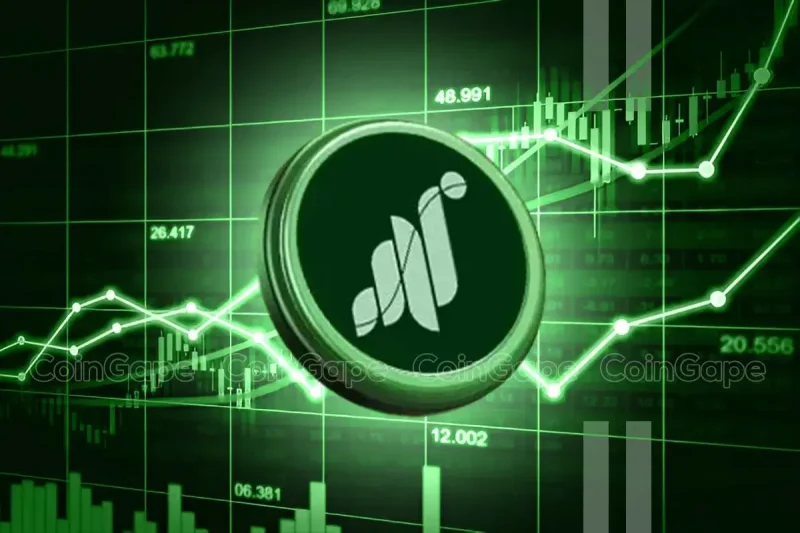
Solana-based GRASS Token Rallies 125% In Three Days of Launch, Here’s Why
Solana-based decentralized physical infrastructure network (DePIN) Project Grass has been gaining massive traction recently with the GRASS token airdrop happening earlier this week on October 28. the governance token GRASS has gained massive traction with a staggering 125% happening just over the past three days.
What’s Behind the GRASS Price Rally?
As of press time, the GRASS price is trading 60% up at $1.82 with its market cap soaring to $450 million and daily trading volumes shooting past $400 million and is among the trending cryptocurrencies for this week. Interestingly, the GRASS token airdrop earlier this week turned out to be the largest within the Solana ecosystem with nearly 1.5 million addresses claiming the governance token.
Prior to this, the popular decentralized exchange Jupiter held the record for the largest Solana airdrop with nearly 639,000 users claiming the tokens. During the initial distribution of the GRASS token on Monday, October 28, it led to an outage on Solana’s largest wallet Phantom.
Over 2.8 million wallets are eligible to receive GRASS tokens, the governance token for the Solana-based DePin project, as they connected within the required timeframe.
One of the major reasons behind this current GRASS price rally has been the growing expectation of listing on Tier-1 exchanges. On the other hand, the futures open interest for the governance token per the Coinglass data has surged by 73% to $90.33 million. Also, the daily trading volume for GRAS futures has surged by 146% to $1.30 billion.
More Understanding About the Solana-based DePIN Project
Grass is one of its one-of-a-kind DePIN projects featuring an open internet-scale web crawl that scrapes and validates data to train AI bots. Millions of users have already downloaded its browser extension and mobile app that collects and cleans the website data while receiving GRASS tokens as rewards. Andrej Radonjic, CEO of Wynd Labs, a core contributor to Grass, said:
“Historically, your bandwidth has been stolen from you by companies that pay developers to sneak software into your free apps. They then turn around and allow F500’s and AI companies to use your device to scrape valuable web data. Today marks the first time ever that users are receiving network ownership for sharing their bandwidth. This bucks a 20+ year trend in an industry that has been reliant on extractive incentive structures”.
The GRASS token will also serve for staking on the protocol, enabling “web traffic flow through the network” and covering bandwidth costs.
Strong Market Momentum Supporting the GRASS Token Rally
Driven by several market shifts, the GRASS token has experienced impressive growth over recent days. Some of the supporting factors for this rally include:
Rising Bullish TGEs: Token Generation Events (TGEs) are regaining popularity, showing a robust market interest.
Utility Over Memes: Investor focus is shifting from meme coins to utility tokens, with GRASS capturing significant attention.
DePIN Sector Dominance: DePIN remains a leading vertical, underscoring the market’s sustained interest in decentralized physical infrastructure.
Evolving Tokenomics: The trend of low-float, high-FDV models is pivoting towards larger initial unlocks—25% in the case of GRASS—a strategy that has proven effective.
High Volume Without Binance: Despite not being listed on Binance, GRASS hit nearly $500 million in volume, indicating strong demand.
Valuation Strategy: Initially pegged at a $600 million valuation, the decision to start lower and allow community gains has paid off, boosting momentum.
The post Solana-based GRASS Token Rallies 125% In Three Days of Launch, Here’s Why appeared first on CoinGape.
